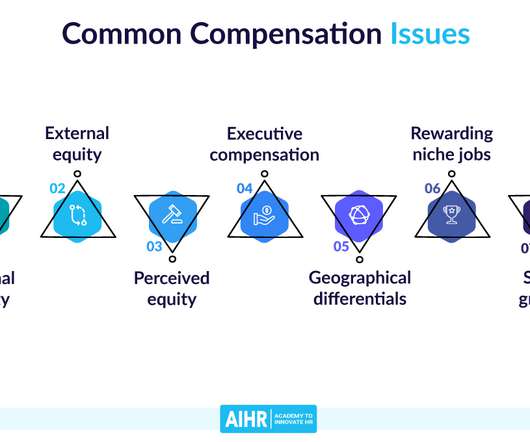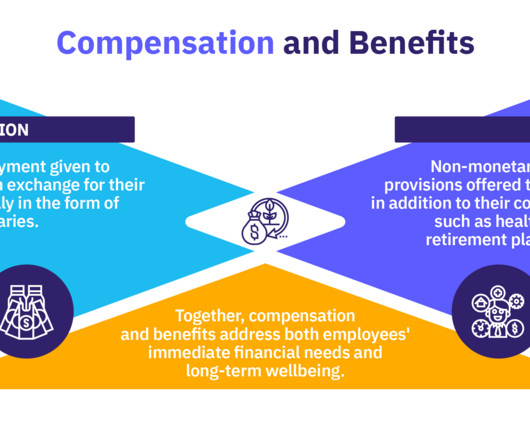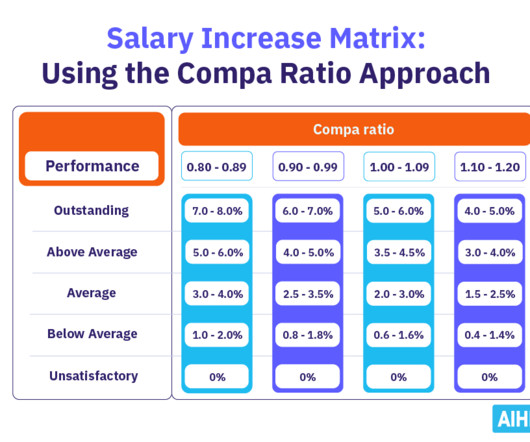7 Compensation Issues and How to Fix Them
Analytics in HR
MARCH 7, 2022
Ignoring compensation issues at your organization can lead to unhappy workers, low morale, decreased productivity, and increased turnover. Hence, your Human Resources and/or Compensation & Benefits department must ensure the compensation you offer to your employees is appealing enough to keep your team happy.
















Let's personalize your content